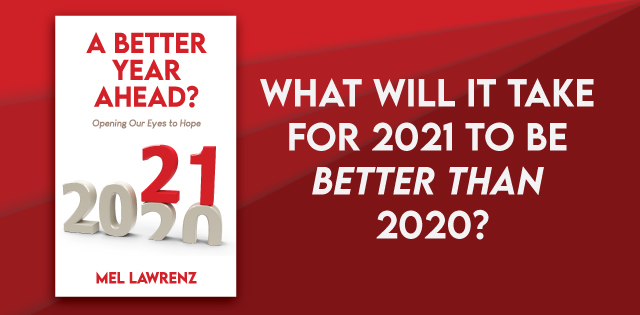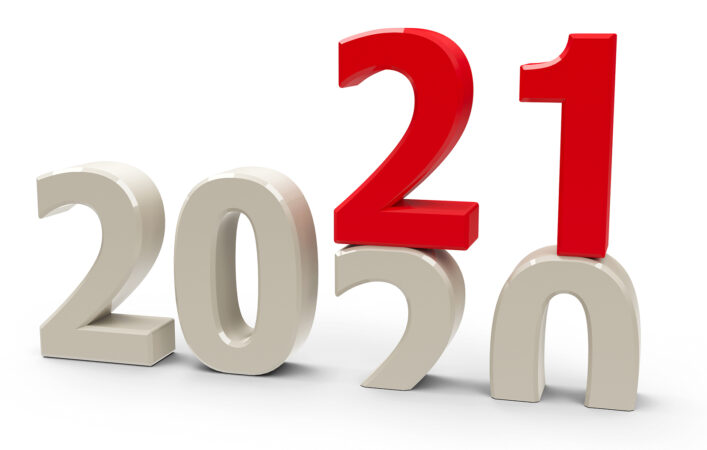[This is chapter 4 in the newly released A Better Year Ahead? Opening Our Eyes to Hope ]
Now that is an important question. Everything we do in life, every choice we make, every reaction we have to the people in our lives, every opinion we have about how things are going in our communities and our nation, flow out of that structure hidden deep in our minds and hearts: what we believe.
Some of our beliefs are good perceptions of reality, but some are mistakes. Someone once said (and it has been repeated many times): “It doesn’t matter what you believe as long as you are sincere.” What utter nonsense. Of course it matters what we believe. Unfounded beliefs can kill us, literally. Belief is about reality, not about feeling or preference. Sincerity of belief is only as good as the soundness of the belief.
My wife and I used to live in a house right where a state highway made a perfect 90 degree turn. Once in a while, in the middle of the night, we heard the screech of tires and a decisive thump. Then silence. One more driver who believed the road ahead was straight, but discovered the hard truth that there was a 90 degree turn. It didn’t matter that they believed the road was straight. It didn’t matter that their belief was sincere. Ditches have a way of asserting themselves.
Reality rules every time.
Once I was in a conversation with a friend about alien life forms and whether it is possible they have visited Earth. Her comment struck me: “I could believe that.” That was an honest statement. But, of course, the issue is not what we could believe, but what we should believe. The issue is whether there is evidence to believe something is true. Now that takes some work. We have to think. We have to listen to sources of evidence, and before that, judge the reliability of the sources of evidence. Some people don’t want to do that work. They just want to know who to follow, nodding in agreement on every issue.
So let’s break this down. What are the steps each of us should take in deciding what we should believe? There are specific methods for this. Historically proven steps. This applies to whether you are deciding to accept your doctor’s analysis that you have cancer, or what source to turn to for weather forecasts, or whether someone is guilty of a crime. There is a wonderful consistency in the proper steps of seeking truth.
[SIGN UP for email updates of articles, prayers, and other resources from Mel Lawrenz via The Brook Network.]
Here is one way of describing that progression.
Step 1. Ask good questions.
Oftentimes in life finding answers is not that difficult. The issue is whether we are asking the right questions.
Here are some good questions: How can I be a better person? Whom do I know who knows what is right and wrong? What does it mean to live a good life? What are my core responsibilities as a parent? What is the law of the land, and how can I be committed to it?
Here are some inferior questions: How can I feel good? What’s in it for me? How can I avoid people who make me uncomfortable? Why are those other people so despicable? How can I hoard what I have? How can I cheat in order to win? Who has raw power and how can I attach myself to them?
Our instincts about what questions to ask in life reveal the disposition of our minds and hearts. Before we go looking for answers, we need to ask ourselves whether we are asking good, life-giving questions.
Step 2. Gather evidence, and judge its reliability.
Let’s say someone tells you that if you put some money in their investment account, you are guaranteed that your money will double in five years. You are attracted to the possibility. But it seems too good to be true. (Most things that seem too good to be true, are not true at all.) You need evidence that this claim is reliable. So you research the financial entity. You find reviews from reliable publications. You call your brother who is a banker and ask his opinion. You ask more questions of the person making the offer, including “What do you mean ‘guarantee’?” knowing that there is no such thing with investments. Before going any further, you turn away for lack of reliable evidence.
Step 3. Keep an open mind.
For some issues in life there is a range of evidence. Look at any courtroom trial. “Guilty” is one possibility; “not guilty” the opposite. Maybe it only takes a day-long trial to look at the evidence, or maybe a month. Jurors are sworn to keep an open mind. And the jury selection process is supposed to weed out potential jurors who are incapable of keeping an open mind.
A long time ago I was called up for jury duty. It felt weighty and sobering. In the jury selection process before each trial the judge looked at all of us potential jurors and said: “The most important duty of a member of jury is to evaluate the credibility of the witnesses and the evidence.” I’ll never forget that. It makes perfect sense, of course. And, imperfect as a jury trial can be, it still is one of the best alternatives for discovering the truth of a matter. Sometimes a life or death matter. I have never been accused of a crime and have never been on trial, but if I were, and if I were innocent, I’d want to look over at the faces of the jurors and see concentration, focus, and signs of open-mindedness. I would want the jury to do the work to come to the rational, evidence-based belief of my innocence.
This is why bias kills us. It is prejudice: to pre-judge. I don’t want members of a jury to make assumptions about me because of how I look or because I am different from them. I need them to be open-minded. Fair-minded. Unbiased. Objective. Impartial.
We owe this to each other. And we owe it to the truth. True impartiality and fair-mindedness is a great gift.
To be open-minded means that once in a while we will change our minds. We break from the pack. We show some independence of thought. To go along with the gang is weakness. To have independent thought is strength.
Step 4. Explore different answers.
Let’s say you grew up in a home that was 100% committed to one political party. Let’s say this not only meant that your parents always voted along the party line, but they also believed that it was necessary to agree with every point and every sub-point in the party’s platform. Even if the platform changed over the years. Even if what you were supposed to believe was one thing ten years ago, and something different today. Party loyalty was an all-or-nothing proposition.
Most people know that, in spite of party loyalty, they may find some points on which they have a very different belief. This should come as no surprise. Policy positions are complicated and diverse and fluid in some ways.
Deciding what you believe means exploring different answers. Many people of faith will say they personally believed one thing about the criminal justice system years ago, but they look at it differently now having gone through the process of asking good questions, gathering evidence, keeping an open mind, and exploring different answers. The same is true for many issues.
When we decide what we believe we are building a foundation on which we can base our lives, all the while being humble enough to change our minds on some of the details as we mature and grow.
Step 5. Come to a conclusion.
At some point we conclude what we believe. It may be like a light coming on one day, or it may be like gradually waking up in the morning. On the really big issues of life, like whether we believe that God exists or whether Jesus Christ is the Savior, we don’t expect to move in and out of that belief. On other detailed matters we take a position in what we believe while being open-minded to new evidence that may come along at any time. There is no crime in changing one’s mind on climate change or economic theory or the denomination of the church you attend. There are some major issues in life that we will only understand after we mature. Or after we have suffered.
Step 6. Test it in real life.
All of our beliefs will be tested by real life. When my 30-year-old daughter, whom we loved and cherished from the day she was born, suddenly died, all of my beliefs were challenged. My faith beliefs were not nullified, but they were re-ordered, and that for the good. From that time three and a half years ago, until today, and until the day I die, I know that the providence of God and the goodness of God are two truths I will always cling to. These beliefs helped my wife and son and me get through the terrible loss.
When I realize I have come to believe something I had never thought of before, I know that real life will put it to the test. Sometimes we need to believe something even though it seems to contradict common sense. But that is only an apparent contradiction.
All true beliefs move toward a harmony that builds and builds.
We should never believe things merely because someone is shouting them loudly and relentlessly. We can do better, we must do better, than just belonging to a herd that moves thoughtlessly along.
[SIGN UP for email updates of articles, prayers, and other resources from Mel Lawrenz via The Brook Network.]

